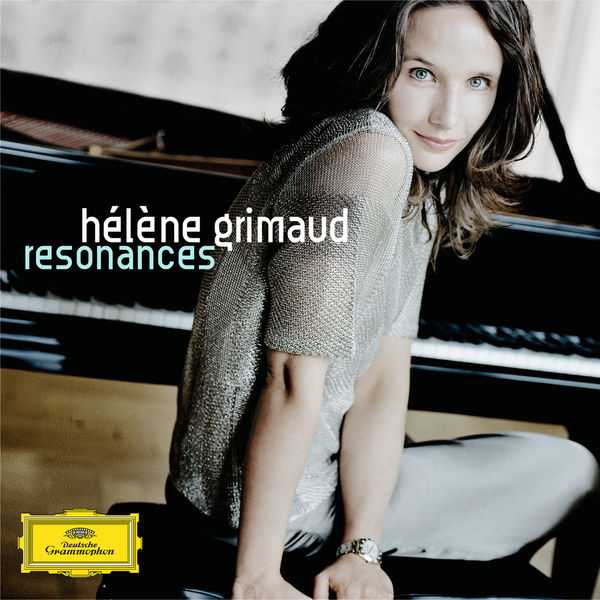

Composer: Béla Bartók, Alban Berg, Christoph Willibald Gluck, Ferencz Liszt, Wolfgang Amadeus Mozart
Performer: Hélène Grimaud
Format: FLAC (tracks)
Label: Deutsche Grammophon
Catalogue: 4778766
Release: 2010
Size: 1.02 GB
Recovery: +3%
Scan: cover
Mozart: Piano Sonata No. 8 in A minor, K310
01. I. Allegro maestoso
02. II. Andante cantabile con espressione
03. III. Presto
Berg: Piano Sonata, Op. 1
04. Mässig bewegt – Langsames Tempo – Quasi Adagio
Liszt: Piano Sonata in B minor, S178
05. Andante sostenuto – Allegro moderato – Lento assai
Bartók: Romanian Folk Dances, Sz. 56, BB 68
06. I. Stick Dance
07. II. Sash Dance
08. III. Stamping Dance
09. IV. Dance of Buchum
10. V. Roumanian Polka
11. VI. Fast Dance
12. Gluck: Melodie from “Orfeo ed Euridice”, Wq. 30 (Arr. Sgambati for Piano)
After a brief absence from the concert platform, Hélène Grimaud is back and presenting a brand new solo recital programme, which she will take on a world-wide tour during the upcoming concert season.
The pianist has conceived another programme of works spanning a wide range of emotions and styles, yet all linked by their origin in that singular musical line of succession: the great composers of the Austro-Hungarian empire. Her new album bears the title Résonance, reflecting Grimaud’s imaginative approach to this stimulating compilation of masterpieces.
Hélène Grimaud brings all her artistic maturity and a perfect balance between intellect and emotion to bear on highly dramatic sonatas by Mozart – the A minor K.310 – Liszt and Berg, leavened by Bartók’s irresistible Romanian Folk Dances.
For Grimaud the keystone here is Alban Berg’s hyper-charged, ultra-romantic Opus 1. In this highly concentrated work, the fascinating interrelationships, resonances, between the composers and pieces are summarized and condensed. “This is a music drama in the miniature form of a single-movement sonata,” comments Grimaud, “a maximum of expression that seems to emanate directly from the heart – contained within a piece of incredibly clear structure.”
Hélène Grimaud’s 2010 album Resonances has a program with a unifying theme, though some explaining is needed to tease it out of the music. All of the works presented on this CD are notable products of the musical heritage of the Austro-Hungarian empire, and the connections Grimaud makes go backward in time to Wolfgang Amadeus Mozart, then pass through Franz Liszt to Alban Berg and Béla Bartók. While the Classical, Romantic, and modernist styles exhibited here are strikingly different from each other — and the average listener shouldn’t be expected to find much in common with Mozart’s Sonata in A minor; Berg’s Sonata, Op. 1; Liszt’s Sonata in B minor; and Bartók’s Romanian Folk Dances — Grimaud nonetheless contends that lines can be drawn through the cultures, languages, and musical expressions of eastern Europe that influenced all these composers. Beyond this broad theme, the playing is characteristic of Grimaud — impetuous, brooding, and vigorous, but above all passionate and showy — so the listener may care less about the ideas justifying her selections when actually hearing her volatile performances. Grimaud is at her best in the Berg and Liszt sonatas, and her elastic rubato is quite effective in these moody works. Her manner of delivery is less attuned to Mozart’s precise music, which needs tighter control and less rushing, or to Bartók’s charming vignettes, which seem almost tossed off here. While some mental leaps are required to follow the album’s thesis, expressed in liner notes adapted from an interview, fans of this virtuoso pianist will draw the direct conclusion that the music is all that matters, and give Grimaud their undivided attention. Others, however, may find the album a mixed lot.



